Egypt. The Thaw.
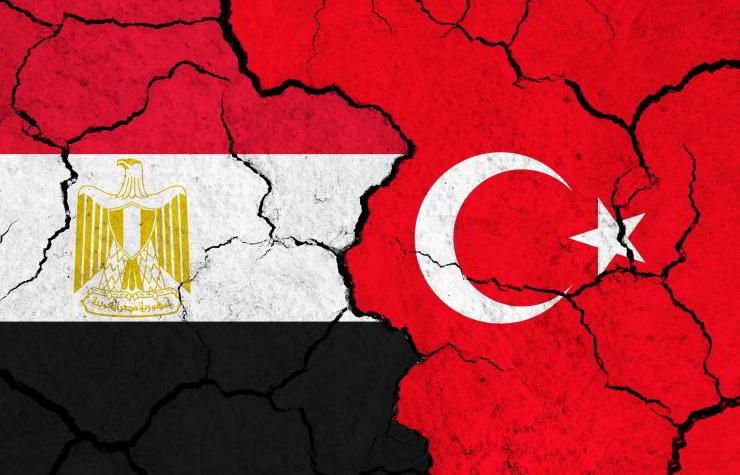
Turkey and Egypt are reconciling after eleven years of estrangement and controversy, which began with the Egyptian coup in 2011 that overthrew the Muslim Brotherhood and installed the
current president. The reasons for the reconciliation can be
read on the regional agendas of the two governments: from Libya to
Palestine, passing through Syria.
An alliance destined to weigh on the dynamics of the Mediterranean and the Middle East. An axis relaunched with vigour after 11 years of frost and controversy, healed by a normalization process that lasted two years and then paved the way for a front that could alter the balance.
At the beginning of September 2024, Egyptian leader Abdel Fattah al-Sisi was welcomed in the Turkish capital Ankara by President Recep Tayyip Erdoğan. Al-Sisi reciprocated the visit of the Turkish leader just a year ago, the first official meeting between two leaders who had never spoken to each other, except to accuse and insult each other.
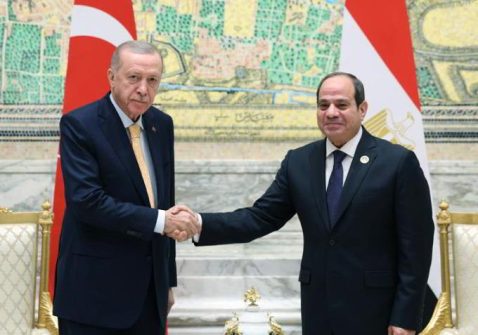
Turkey’s President Recep Tayyip Erdogan, left, shakes hands with Egyptian President Abdel Fattah Al-Sissi. (Turkish Pres. Office)
Turkey had in fact greatly scaled down relations following the military coup that had overthrown the Muslim Brotherhood of Mohamed Morsi and brought al-Sisi to power in 2013.
At the end of 2022 and 2023 Erdoğan and al-Sisi had had two brief meetings. Timid signs of rapprochement that, however, did not suggest the birth of a real axis in such a short time. The dialogue between the two leaders led in a few months to the signing of 16 agreements and targeted a trade volume of 15 billion dollars in 2025 (nine in 2024). However, it is not the economy that makes the two leaders indispensable to each other at this time.
The dialogue between the two giants of the Islamic world extends to the future of Libya, concerning which Erdogan and al-Sisi are “on the same page» and will work “side by side”. In this North African country, Turkey and Egypt had long faced each other, supporting the rival factions in the conflict. Confirming that old grudges are now dormant is the promise that Turkey will supply Egypt with drones, the same TB2s that in Libya were decisive in defending Tripoli from the assaults of Khalifa Haftar, supported at the time by al-Sisi.
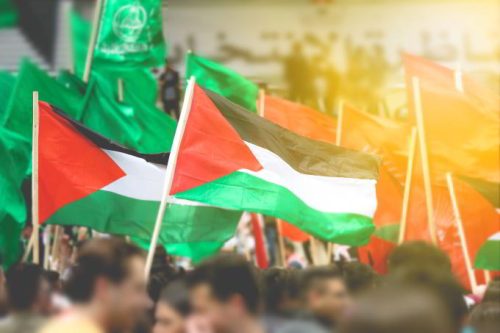
Palestinian flags waved by Palestinian people. The two countries have found themselves forced to be on the front line of the pro-Palestine front.123rf
An unstable political landscape and the difficulty of reaching new elections in Libya have pushed the two leaders to leave grudges behind and collaborate: “We want stability in Libya, but also in Sudan and Somalia”, were Erdogan’s words on the sidelines of his visit to Cairo.
The Horn of Africa is another theatre in which Ankara and Cairo are driven by common interests. The stability of the area is important for Turkish activities and numerous investments, but it also remains a priority for Cairo, which does not want refugees.However, what gave a decisive boost to the normalisation process was October 7 and the war in Gaza, a moment in which the two countries found themselves forced to be in the front line of the pro-Palestine front.
The Gaza question
In recent months, al-Sisi has shared with Qatar the delicate role of bridge-builder in negotiations with the US and Israel. Erdoğan has acted behind the scenes and exploited his influence on Hamas, with a very decisive posture against Tel Aviv.
Leaders of the Palestinian militia party such as Ismail Haniyeh and Sameh al-Arouri have long found a safe haven in Turkey, before being killed in Iran and Lebanon, respectively. Their deaths, however, have not dented Turkey’s influence and support, nor the dialogue that Erdoğan is carrying out with the Palestinian organisation.
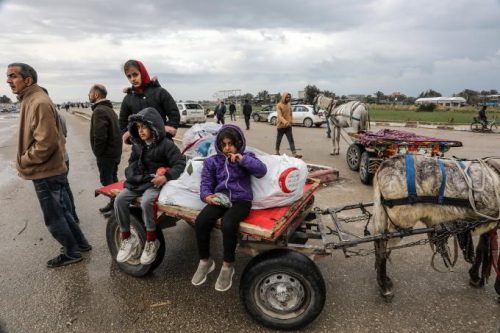
Palestinians from Khan Yunis, the southern Gaza Strip. Shutterstock/Anas-Mohammed
On the international scene, Turkey and Egypt seem to have divided the tasks: al-Sisi has offered the negotiating table, Erdoğan has become the megaphone of the Palestinian cause. The diplomacies of the two countries have acted in a coordinated, almost complementary manner during the months of the conflict: Ankara has put pressure on the international community; Cairo has devoted itself to dialogue and negotiations. A collaboration that also involved the health ministries of Ankara and Cairo, promoters of a humanitarian bridge that brought hundreds of sick Palestinians to Turkey via Egypt, while 500 tons of Turkish humanitarian aid travelled the opposite route.
Gaza-Egypt-Turkey is also the route taken by 15 Palestinian prisoners freed as part of the ceasefire agreement, and whom Israel forced to leave Gaza and the West Bank.
The ceasefire itself should have consolidated the Erdogan-al-Sisi front to relaunch the creation of a Palestinian state within the borders established by the 1967 UN resolution. An idea shared by Erdogan and al-Sisi. In the end, it was US President Donald Trump’s proposal for Gaza that strengthened the axis.
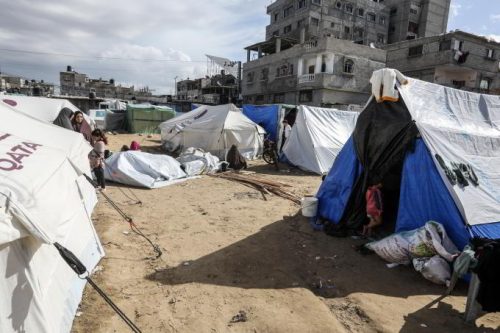
Displaced Palestinians are living in tents after fleeing the city of Khan Yunis for Rafah. Al-Sisi does not want refugees in his country. Shutterstock/Anas-Mohammed
At the beginning of February, a meeting between foreign ministers produced a joint document reiterating “total opposition” to the plan that provides for the expulsion of Palestinians from the Strip. Al-Sisi does not want refugees. For Erdoğan, champion of the Palestinian cause, this would be a defeat. The last open chapter between the two leaders concerns Syria. Ankara supports the new Syrian transitional government, Egypt has expressed concern about the links with jihadist movements of exponents of the uprising that overthrew Bashar al-Assad; Erdoğan needs al-Sisi for a stable Syria and therefore for the return of refugees, millions of whom are living in Turkey; al-Sisi does not want the winds of change to touch his country. A guarantee that the Turkish leader can now give him more than the new Syrian government. One more reason that makes Erdoğan and al-Sisi indispensable to each other at this time. (GdD) – (Flags of Egypt and Turkey. 123rf)



